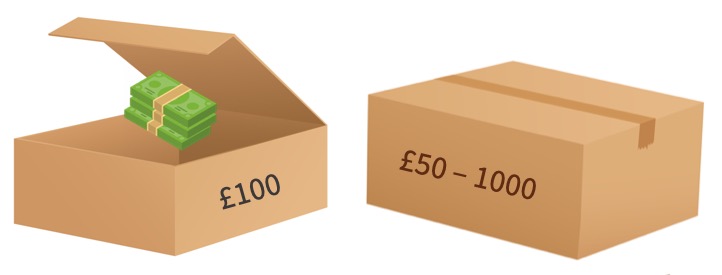
Motivating-Uncertainty
What is the Motivating-Uncertainty Effect?
Introducing a degree of uncertainty to a reward system can enhance its appeal : that is due to the so-called Motivating-Uncertainty Effect. This, in turn, can increase the interest people have in completing a task successfully. Researchers have found that a system of variable rewards makes games and challenges more engaging.
Despite the volume of research highlighting our preference for certainty and our aversion to risk, there are circumstances in which a potential reward is more motivating than a guaranteed one. For example, researchers at the University of Chicago found that participants in a complex task were more motivated to complete it when the reward was either $1 or $2 (a 50% chance either way) than they were when the reward was fixed at $2.

Examples
When providing an incentive for consumers to perform a particular action, the value of the incentive can be increased by making it variable. For example, rather than offering a fixed reward for participating in a survey, it would be more effective to enter participants into a prize-draw. Similarly, it can be more effective to deliver price reductions in the form of variable prizes rather than fixed discounts.
Motivating-Uncertainty Effect
Motivating-Uncertainty comes from our intuitive and emotional responses to questions of probability and risk. Introducing chance and variability to consumer exchanges (also known as “gamification”) increases the desirability of rewards.
